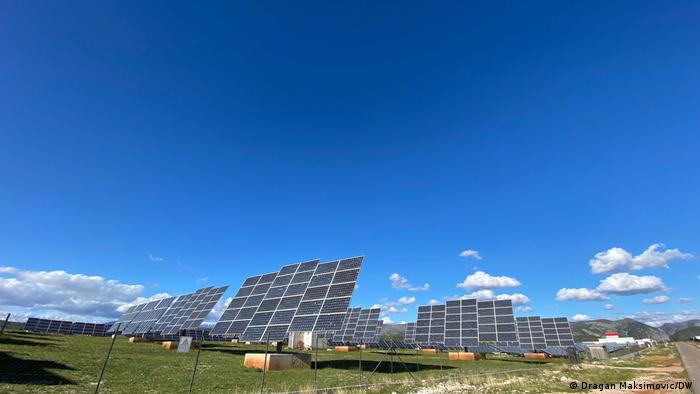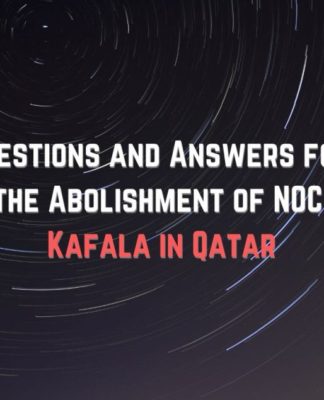CLEAN ENERGY IN SOUTH EAST EUROPE
Coal and corruption impede rollout of clean energy in Bosnia
BALKAN STATES SLOWLY BEGIN TO TAP THEIR VAST RENEWABLE ENERGY SOURCES IN THE HOPE OF ABUNDANT CLEAN HEAT AND POWEREU launches membership negotiations with Albania and North MacedoniaEU announces settlement in Serbia-Kosovo ID disputeOpen Balkan initiative risks aggravating political problems in the regionIEA warns world’s clean energy transition is ‘too slow’Albania cuts ties with Iran amid cyberattack allegationsRussians are increasingly flocking to visa-free SerbiaCoal and corruption impede rollout of clean energy in BosniaSerbia: Enthusiasm for rooftop solar power dampened by costs and red tapeThe truth about Albania’s nonexistent wind power industrySunny North Macedonia falls short of solar thermal expectationsKosovo opens first biomass heat-and-power station
Experts say Bosnia and Herzegovina could be a regional leader in clean energy production. But corruption, the mighty coal industry and cumbersome bureaucracy are frustrating efforts to capitalize on this potential.
Bosnien und Herzegowina | Erneuerbare Energien | Solaranlage bei Hodovo
Solar power plants near the village of Hodovo, Bosnia and Herzegovina
Three years ago, a group of local activists in the village of Pecka in northern Bosnia and Herzegovina set out to exploit the sun’s potential and build a solar power plant on the roof of the Pecka Visitor Center. It was the first such a solar plant in rural Bosnia. The Pecka initiative was the result of a crowdfunding campaign that raised €7,000 ($7,500), which was matched by the UN Development Program, or UNDP.
Yet, a whole year after their installation, the 15 solar panels haven’t generated a single kilowatt of electricity. The law regulating feed-in to the power grid remains unfinished, and the center fears that even using the installed system to produce its own energy, known as self-consumption, might later complicate connection to the grid.
Bosnien und Herzegowina | Erneuerbare Energien | Boro Maric
Boro Maric, owner of the Pecka Visitor Center, oversaw the installation of the first solar power plant in rural Bosnia
“We submitted a request for connection to the local utility in July 2021, and we’re still waiting for an answer,” says Boro Maric, owner of the Pecka Visitor Center. Indeed, the official bureaucracy is so ponderous, it’s “as if we had built a small hydroelectric power plant,” he says. Maric also says that an acute lack of information about the entire process has made the project all the more difficult. After the system was installed, for example, the center was informed it would have to pay an additional €4,000 to connect to the grid.
Beleaguered Bosnia
Bosnia and Herzegovina is a federal state made up of two “entities”: the Serb-majority Republika Srpska and the Federation of Bosnia and Herzegovina, which is dominated by Bosniaks and Croats. The two entities were created by the Dayton Peace Accords that ended the Bosnian War at the end of 1995.
Karte Teilrepubliken Bosnien-Herzegowina EN
In terms of meeting climate goals, Bosnia and Herzegovina has a long way to go: Over 60% of the country’s energy hails from fossil fuels, primarily coal. On paper, Bosnia is on board to decarbonize by 2050 — a mighty promise in light of its prodigious coal use. It intends to ratchet up its share of energy from renewable energy sources to over 40% by 2030, according to international pledges.
Complicated procedures hamper progress
The country plans to institute a system for CO2 pricing and trading by January 2026, which could cost the coal industry dearly, say experts. The greatest hurdles are the state’s complicated distribution of competencies in the field of energy and the powerful vested interests of the coal industry, say developers and experts.
Infografik – Gesamtstrombedarf Bosnien und Herzegowina – EN
Not only do Bosnia’s entities have complete autonomy in decision-making when it comes to energy, so too do the ten cantons within the federation. “These complicated procedures are the reason for the slowness” of Bosnia’s decarbonization processes, says Halko Balavac of the Federal Ministry of Energy, Mining and Industry. Each canton must submit its consent for each project, followed by the entity and then the state.
Planned investments
“We have projects in which the municipality, canton, entity and state have jurisdiction, and it takes three to five years to get all the permits,” says Senad Salkic, a director at Elektroprivreda BiH, a Bosnian public electric utility company with headquarters in Sarajevo. At present, less than 20% of the utility’s power is green, although it plans to invest about €220 million in renewable energy sources over the next two to three years, primarily in solar, wind and hydroelectric. This amounts to 36% of the utility’s total investment in production facilities.
Bosnien und Herzegowina | Erneuerbare Energien | Senad Salkic
Senad Salkic is a director at Elektroprivreda BiH, a Bosnian public electric utility company
In terms of laws enabling renewable energy, Republika Srpska recently passed statutes, which are still being finalized, that allow households to both produce and consume electricity. Republika Srpska has contracted projects in the field of renewable energy worth over €1 billion, according to its minister of energy, Petar Djokic.
Privileged investors
Of the 180 countries that Transparency International assesses for corruption, Bosnia scores poorly, ranking between Albania and Malawi. The renewable energy sector, it seems, is no exception to the rule. Republika Srpska parliamentarian Nebojsa Vukanovic says privileged investors who are close to the authorities are the ones who land concessions.
Infografik – Anteil eneuerbarer Energie in Bosnien und Herzegowina – EN
“Ninety percent of concessions in the field of renewable energy sources are given to companies owned by politicians from the ruling party or their close relatives, who serve as a cover for them,” claims Vukanovic. Minister Djokic, however, claims that everything is done “according to the law.” “There are no privileged parties who get concessions,” he says.
Coal is king
Bosnia boasts large reserves of coal and, according to critics, the state and energy industry intend to continue profiting from it. Experts say coal-fueled power plants in the central Bosnian cities of Tuzla and Kakanj will continue to operate at least until 2040, probably longer.
Bosnien Stanari Kohlekraftwerk
The coal-fired power plant Stanari, Bosnia and Herzegovina
“Energy in Bosnia is run by state-owned or entity-owned companies,” says economist Damir Miljevic of the Center for Sustainable Energy Transition (RESET), which advocates for renewable energy. “If it is state-owned, it is influenced by politics. This is why they do not want to change anything.”
Although Bosnia’s renewable energy supply is very small at present, Miljevic is convinced that the country has the potential to lead the Western Balkans in terms of renewable energy production. “Now is the time for water, sun and wind,” he says. “In all three categories, Bosnia and Herzegovina has perhaps the best conditions in Europe. Instead of using it as a development opportunity — switching from one type of energy to another — they say no, we will continue with coal, as long as it lasts.”
Play Video1:44 min
Bosnia: “Everything that happens, happens the way it shouldn’t”
This article is part of a five-part series on renewable energy development in South Eastern Europe conducted with the support of journalismfund.eu.
Edited by Paul Hockenos, Rüdiger Rossig, Aingeal Flanagan
WWW LINKS
Journalismfund.eu in a snapshot
Journalismfund.eu vzw is a Brussels-based independent non‐profit organisation incorporated by citizens in 1998, dedicated to advancing independent cross-border investigative journalism across Europe in order to promote democracy. It ultimately serves the public interest, furthers accountability as well as transparency, and contributes to critical thinking and well-informed debate. Journalismfund.eu administers grants to foster exemplary investigative journalism throughout Europe and beyond and to promote journalistic innovation. Journalismfund.eu’s flexible grants programmes enable journalists to produce relevant public interest stories with a European mind-set from international, national, and regional perspectives. Journalismfund.eu always upholds its grantees’ editorial independence and strives for high journalistic quality and rigour. Where necessary, Journalismfund.eu mentors and provides support to investigative teams that have strong ideas but lack experience and infrastructure for collaborating across borders. Journalismfund.eu serves the European community of journalists interested in developing best practice in journalism. Its overall objective is to promote and improve the profession in response to the challenges and opportunities stemming from internationalisation, digitalisation, and changing revenue models. Journalismfund.eu’s activities are made possible through the support it receives from public, private, and corporate funders. It extends its gratitude for the generous and consistent support it has received from the Adessium Foundation, Arcadia, the Dutch Postcode Lottery (via Oxfam Novib), the Flemish Government, Fritt Ord, Fondation Puech, Vereniging Veronica, the King Baudouin Foundation, the Open Society Foundations and Stavros Niarchos Foundation (SNF), the European Commission (Creative Europe) and others who wish to remain anonymous. Journalismfund.eu is an intermediary and firewall between donors and journalists. This intermediary role is essential to enable donors to finance investigative journalism without affecting the credibility and independence of the journalists. Ultimately, Journalismfund.eu only works in the interest of the general public, by enabling a well-informed debate as a condition for citizens to shape a democratic society.
Date 16.08.2022
Author Dragan Maksimović (Banja Luka)
Related Subjects COP 26: Everything you need to know, Srebrenica, Energy crisis, Climate change
Keywords Western Balkans, Bosnia and Herzegovina, renewable energy, coal, solar power, climate change
Feedback: Send us your feedback.
Print Print this page
Permalink https://p.dw.com/p/4CozN






























